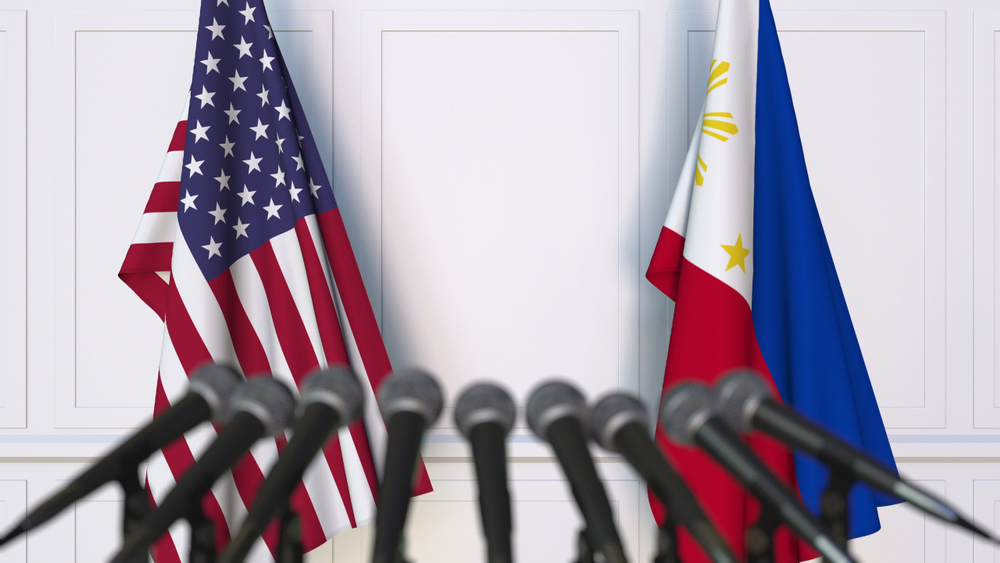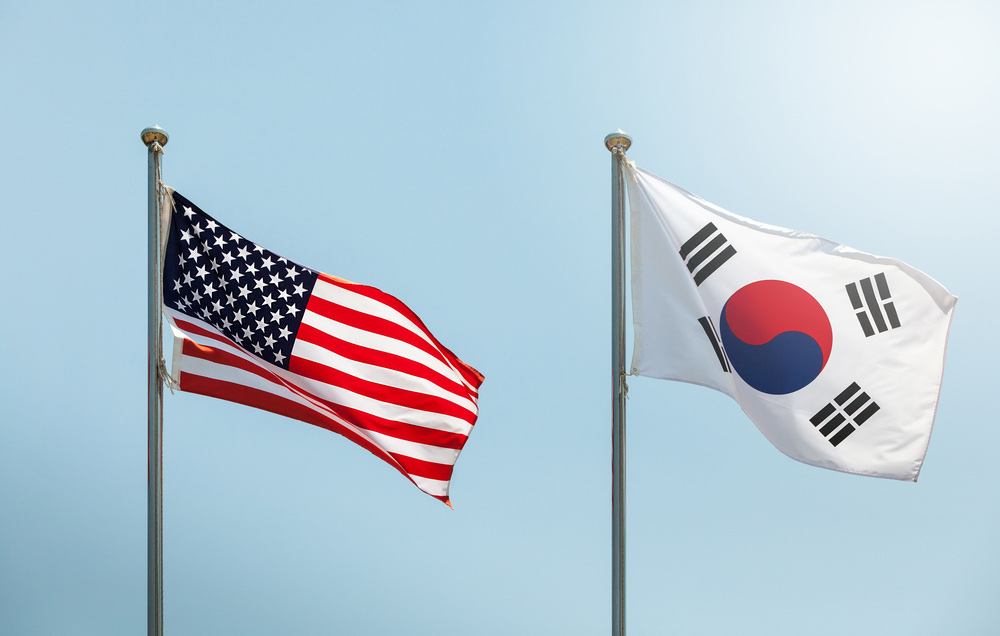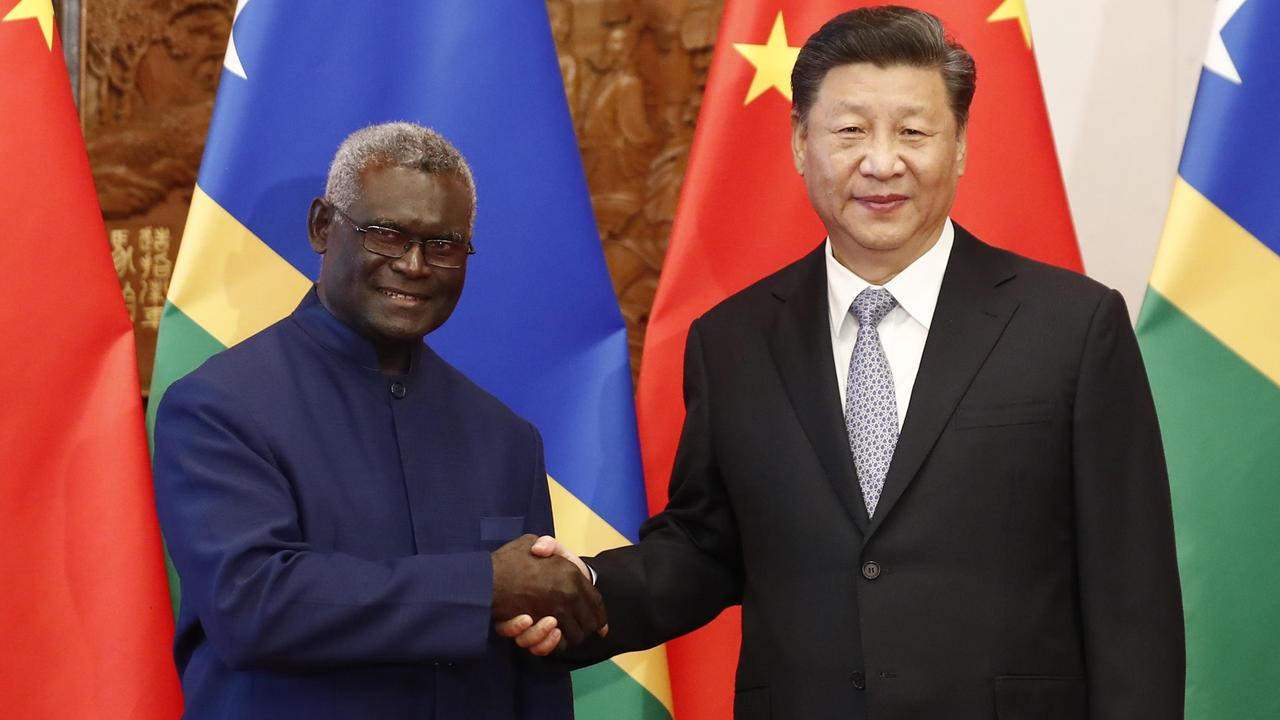In May, the US and Micronesia made several important advancements in their relationship. On 22 May, the United States and the Republic of Palau concluded negotiations related to the Compact of Free Association (COFA) agreement. On 23 May, the US and the Federated States of Micronesia (FSM) also concluded COFA negotiations by signing three agreements: one to amend the Compact, one to put in place new fiscal procedures, and one related to extended economic assistance under the Trust Fund Agreement. Despite the progress on those two COFA agreements, the Compact agreement with the Republic of the Marshall Islands is still being finalized, and there is still much work to be done to uphold the promises the US government has made in the Pacific.
Both COFA agreements reflect the US government’s focus in the Pacific as outlined in the Pacific Partnership Strategy, released in September 2022. The Pacific Partnership Strategy outlines four main objectives for US policy in the region and was released in conjunction with the first-ever US-Pacific Island Country Summit held in 2022. At that Summit, the White House hosted leaders from across the Pacific and the Biden Administration proposed restoring the Peace Corps to the region, creating new missions for the US Agency for International Development, funding digital connectivity, and initiating at least 20 other programs. Concluding the COFA negotiations enhances US credibility in the region and serves as a model for the US as a reliable partner in the broader Indo-Pacific.
Why does Micronesia matter?

The Pacific Islands represent the maritime crossroads between East Asia and the United States. For this reason, Oceania has become an increasingly important geostrategic region as the United States reconceptualizes its strategy in the Indo-Pacific. The subregion of Micronesia (also referred to as the “North Pacific,” since most, but not all, of the Micronesian nations are north of the equator) is part of the Pacific Islands region. It is also at the center of US interests in the Pacific Islands region because of the COFA states (Marshall Islands, Federated States of Micronesia, and Palau), which rely on the US for their external security, and the presence of US territories (Guam and the Commonwealth of the Northern Mariana Islands). The United States has strong economic, security, travel, educational, and diaspora ties across Micronesia.
The Pacific Partnership Strategy, a separate strategy but one embedded within the larger Indo-Pacific Strategy of the US, specifies four main objectives. First, it calls for a strong partnership with Pacific Island countries by fulfilling US commitments and helping build partner-nation capacity. Second, the strategy calls for a “Pacific Islands region connected to the world” and states that the US will foster Pacific regionalism and coordinate with allies and partners. Regionalism will be promoted primarily through the Pacific Islands Forum, which is the “region’s premier political and economic policy organization.” Third, it states that the US will help build resiliency in the region to “combat the climate crisis.” The fourth and final objective is “to fully empower the Pacific” through global infrastructure investment, people-to-people ties, and related programming.
The first objective of the Pacific Islands Strategy, which calls for a “strong US-Pacific Islands partnership,” explicitly states that “successfully completing negotiations” on the Compact is a central pillar of US strategy. Conclusion and funding of the COFA agreements is thus a critical way for the US to show that it is “a committed partner to the Pacific.”
Across Micronesia, there is a clear consensus on some issues, such as climate change, but Micronesian countries and territories do not hold monolithic views of US engagement in the region. This lack of consensus is illustrated by the conclusion of the Compact negotiations with Palau and the Federated States of Micronesia, but not yet with the Marshall Islands. The issues in the Marshall Islands are complex and reflect challenges associated with the nuclear testing legacy at Bikini Atoll and continuing concerns about sea level rise and how that could affect the storage of nuclear waste at Runit Dome.
All three Compact states are strong US partners in the North Pacific, but each country has unique facets of its relationship with the United States; thus, they must each be engaged on their own terms. Kenneth Gofigan Kuper, a professor at the University of Guam and director of the Pacific Center for Island Security, notes that the “islands and their inhabitants need to be continuously engaged by the US when deliberating on policy issues that will affect Micronesia.”
What’s Next for US and Compact States?
The conclusion of the COFA negotiations is an important step forward but is not the only one that needs to occur to build credible long-term partnerships. Next, Congress will need to approve the agreements before they can officially enter into force. Then, once they have been approved, funds for the agreements and for federal programs will need to be appropriated. According to a State Department press release, “Additional negotiations are underway to continue federal programs and services that are currently provided under a Federal Programs and Services Agreement.” Those programs and associated funding will be important for implementing the COFA agreements.
Active coordination among federal government agencies will also be a determinant of successful implementation. On May 16, Emil Friberg, a Georgetown University professor and former assistant director and senior economist at the Government Accountability Office (GAO), testified before Congress and explained that “no federal body effectively coordinates COFA policy.” Friberg recommended that “Congress should reestablish an Interagency COFA group . . . [that] could coordinate government-wide responses to COFA issues, such as security threats, climate impact, and Compact migration.”
On 9 June, US House of Representatives Committee on Natural Resources Chairman Bruce Westerman and Ranking Member Raúl Grijalva announced that they are launching the bipartisan Indo-Pacific Task Force. The task force will coordinate with both the Freely Associated States (FAS) and territories in the Pacific. According to their announcement in The Hill, “The task force’s goal is to conduct oversight on the issues facing the Pacific territories and the FAS, as well as provide policy recommendations to the committee at large as we work to counter mounting influence from the Chinese government in the region.”
Coordination (or lack thereof) is regularly cited as a problem for island states that may not have the capacity to effectively deal with the enormous US bureaucracy. During the Pacific Islands Strategic Dialogue, a Track 1.5 event held in May 2022 in Micronesia, the issue of interagency coordination was repeatedly raised as a difficult one for Pacific Island countries to navigate. Countries in Micronesia have populations that are smaller than entire federal government agencies: for example, the Republic of the Marshall Islands has 42,050 residents (based on the 2021 census), whereas the Department of Interior, which administers the Compact agreements, has approximately 70,000 employees.
This difference in size is not the only challenge to effective coordination. Trust must also be built, maintained, and re-invigorated. Trust remains one of the key challenges for the conclusion of the final Compact agreement with the Republic of the Marshall Islands. In late 2022, activists sent a signed petition to the Biden Administration requesting an apology for nuclear testing in the 1940s and 1950s. During dialogues in Micronesia, representatives from the Marshall Islands have stated that while some information related to nuclear testing has been declassified, redacted text in those documents makes them nearly impossible to read, thereby preventing citizens from fully evaluating what occurred. In Pacific cultures, Indigenous scholars have shown that you cannot move into the future without acknowledging “the past before us.” Acknowledging the relationship between past and present is necessary to build trust and thus is essential to creating long-term partnerships for the future.
On 22 May, Joseph Yun, the US presidential envoy in charge of the COFA negotiations stated, “We have made progress over my three-day visit to the Marshall Islands and we hope to sign an agreement with the Marshall Islands in the coming weeks.” In short, US engagement in Micronesia is making important progress. Although Pacific Island nations do not always receive sufficient attention in international affairs and US foreign policy, a credible commitment to the COFA nations is a necessary foundation for building partnerships of trust across the region.



